
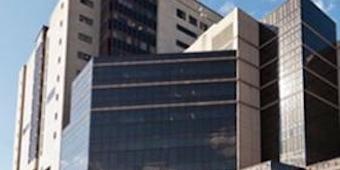
The Biomedical Science Towers are three interconnected high-rise buildings that contain offices and laboratories for all 21 of Pitt's medical departments and programs. The Biomedical Science Tower 3 is a recent addition that houses state-of-the-art facilities for structural biology, computational biology, zebrafish genetics, neuroscience, drug discovery, and vaccine development. In June 2006, the BST1 was renamed in honor of Dr. Thomas Starzl, a pioneer in the field of transplantation surgery and immunology.
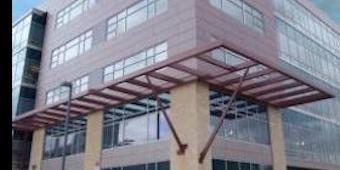
The Bridgeside Point I and II buildings are located off campus on Technology Drive.
Departments located in Bridgeside Point l include physical therapy, occupational therapy, a craniofacial clinic, along with research institutes focusing on aging sciences and communication disorders.
The various departments housed at the Bridgeside Point II facility include McGowan Institute for Regenerative Medicine, Orthopeadic Surgery and Microbiology & Molecular Genetics. This building is also home to both the Stem Cell Research Center (SCRC) and the Pittsburgh Tissue Engineering Initiative (PTEI).

The University Of Pittsburgh School Of Medicine's library. The Falk Library, located in Scaife Hall, is a great resource for all students. The library's collection contains more than 2,600 electronic journals, 300 electronic books, 45 electronic databases 300,000 print books, 2,000 print journal subscriptions, 1,000 videotapes, 500 audiotapes, and 300 computer software packages.
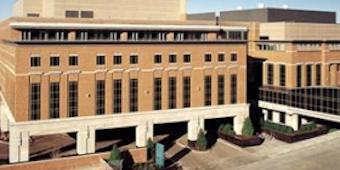
Located adjacent to Shadyside Hospital, The Hillman Cancer Center presides over 6 million Western Pennsylvanians. HCC ranks 14 in funding from the NCI (National Cancer Institute). The Centers faculty and staff work to improve our knowledge of cancer and work to develop new life saving procedures involving cancer prevention, diagnosis, and treatment. The Hillman Cancer Center is home to surgical, medical and radiation oncology specialists recognized internationally for their work in the field.
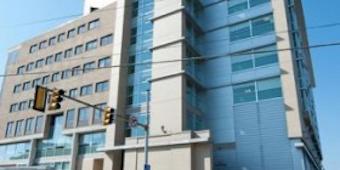
Magee-Womens Research Institute (MWRI) is one of the largest research institutes dedicated to reproductive biology and women's health in the United States. MWRI faculty and trainees pursue a broad research agenda that spans reproductive biology and development, pregnancy, female infectious diseases, fertility, cancer, pelvic health and well-being of women throughout the lifespan.
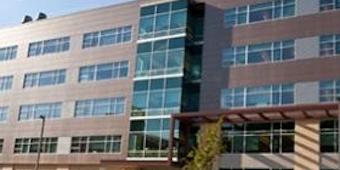
Located in the South Side, the McGowan Institute for Regenerative Medicine was established to advance our understanding of tissue engineering and other techniques aimed at repairing damaged or diseased tissues and organs. It is a base of operations for the university's leading scientists and clinical faculty who are working to develop tissue engineering, cellular therapies, biosurgery, and artificial/biohybrid organ devices.
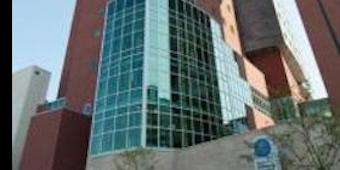
Children's Hospital's John G. Rangos Sr. Research Center is the hub for pediatric research performed in Pittsburgh. It houses state-of-the-art laboratories and equipment where researchers are dedicated to improving treatments and finding cures for diseases that affect children all over the world.
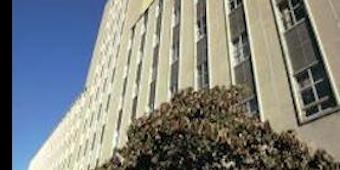
This building houses the IBGP and Graduate Studies offices and classrooms.
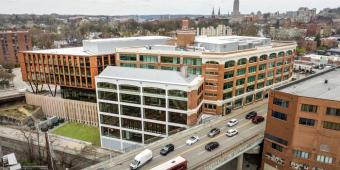
The Assembly building is located at 5051 Centre Avenue in Pittsburgh’s Bloomfield neighborhood. This historic building once housed a Ford Motor Company assembly plant. In 2022, the building was converted to a world-class biomedical research hub. The building houses new state-of-the-art lab spaces for researchers, a variety of conference rooms, and an 250+ seat auditorium.
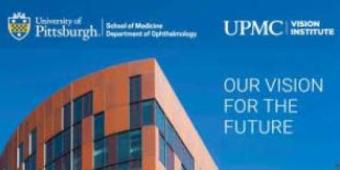
UPMC has a rich history as an academic medical center and key partner of the University of Pittsburgh. The new UPMC Mercy Pavilion houses the UPMC Vision Institute, the UPMC Rehabilitation Institute and research labs. This building is also home to the University of Pittsburgh's Department of Ophthalmology.
